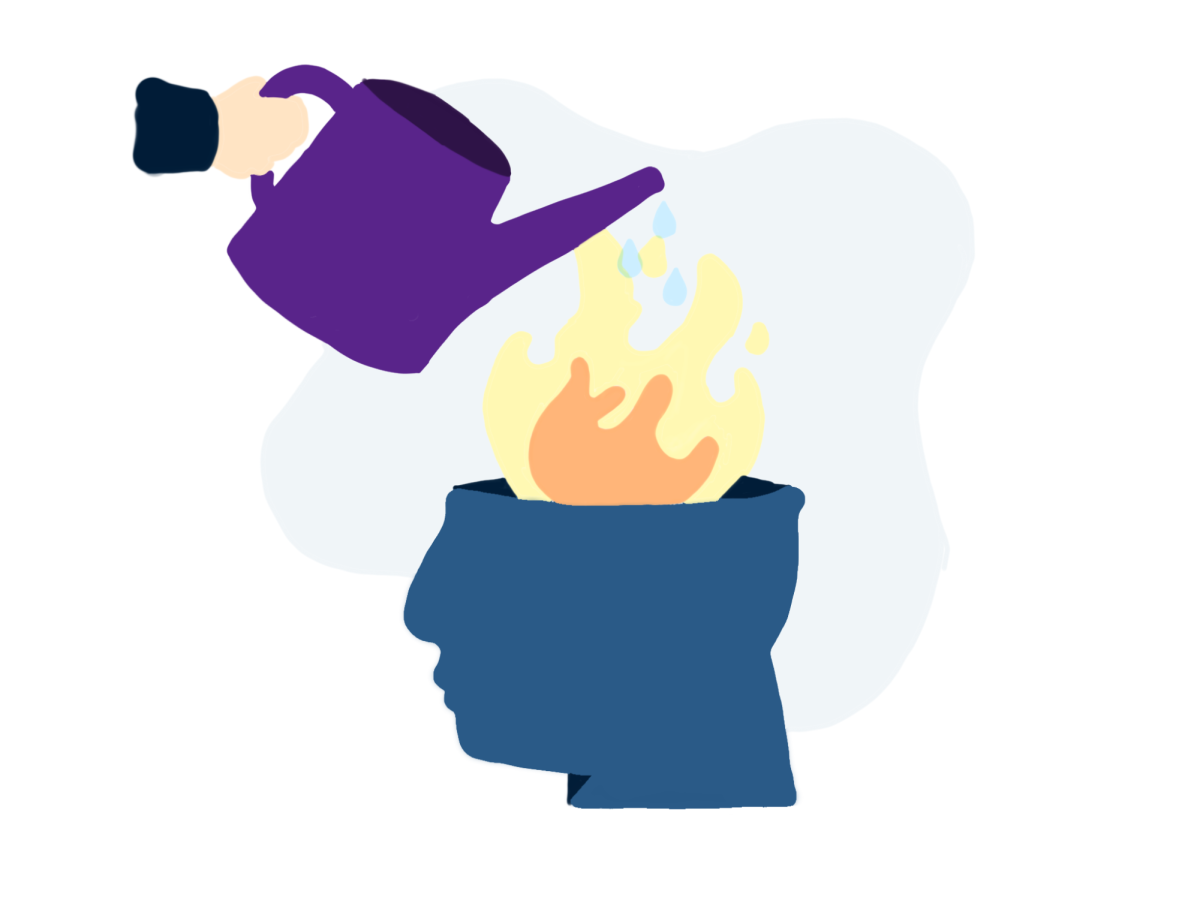In early January, the Eaton fire swept into our own community in Altadena, California, leaving a trail of devastation not only in the physical environment but also in the mental well-being of our community. While attention is often focused on the immediate physical damage caused by such disasters, the psychological aftermath can be just as significant and long-lasting.
Events like the Eaton fire induce high levels of stress and anxiety among those affected.
“It was really stressful for me and my family, and we still are experiencing high levels of stress because we lost our home.” Grace Adair ‘26 said.
The immediate threat to life and property triggers a flight-or-fight response, which can linger long after the flames have been extinguished.
For residents of Pasadena and other towns near FSHA, the sight of burned landscapes and the smell of smoke may act as traumatic reminders, leading to symptoms of post-traumatic stress disorder (PTSD), including flashbacks, nightmares, and heightened anxiety.
“Some Tologs are experiencing symptoms like PTSD which include feeling numb and detached, having thoughts that interfere with focusing on classwork, difficulty concentrating, being irritable, and not being able to sleep. It’s important to address these symptoms and reach out to a trusted individual to let them know you’re struggling.” Ms. Nicole Nardon Director of Counseling and Psychological Services said.
Displacement is another significant factor. Many families were forced to evacuate their homes, unsure if they would have anything to return to. The uncertainty surrounding their safety and the loss of personal belongings can lead to grief, depression, and feelings of helplessness.
“It was the scariest thing having to evacuate my home and leaving so many items behind. It became even scarier when we weren’t sure if we’d ever be able to go back.” Renee Norton, mother of Carly Norton ‘26, said.
The Eaton fires have also strained community dynamics. While natural disasters can foster a sense of solidarity, they can also amplify tensions as resources become scarce.
Long-term recovery efforts often expose disparities in access to support systems, with low-income and marginalized groups facing disproportionate challenges in rebuilding their lives. These inequities can deepen feelings of frustration and hopelessness, further impacting mental health.
Addressing the mental health repercussions of the Eaton fires requires a multi-faceted approach. Local governments and organizations should prioritize mental health resources alongside physical recovery efforts. Counseling services, community support groups, and crisis hotlines can offer much-needed assistance to those grappling with the emotional aftermath.
A list has been compiled of professionals who are offering free therapy below.
Lists of Pro Bono Therapists offering services
This list has been produced by a group outside of FSHA; the therapists on this list have not been vetted by FSHA.
There are many coping mechanisms that may help individuals when they’re feeling stressed. These can be done in any environment and will help you feel calmer in the end.
“Some things to do to cope with it are doing breathing or grounding exercises, this includes box breathing.” Ms. Nardon said.
Box breathing is a relaxation technique that helps you get in control of your emotions. All you need to do is breathe in, hold, breathe out, hold. For some individuals, it helps imagining a box or even drawing it with your finger on the nearest surface.
Although the Eaton fires have left scars—both visible and invisible—the Altadena area has an opportunity to build resilience. Community workshops on disaster preparedness and mental health awareness can equip residents with the tools to cope with future challenges. Additionally, fostering open conversations about mental health can help reduce stigma and encourage individuals to seek help without fear of judgment.
The Eaton fires serve as a sobering reminder of the interconnectedness of environmental disasters and mental health. By addressing the psychological impacts with the same urgency as the physical damage, Altadena can foster a more holistic recovery for its residents.
In the face of adversity, community solidarity and access to mental health resources are essential for healing and rebuilding.


